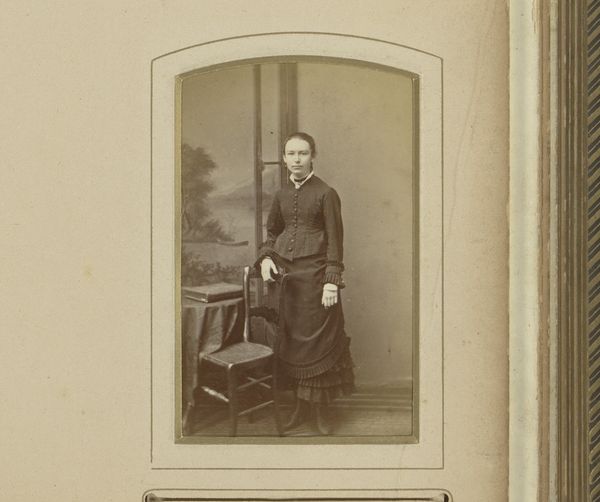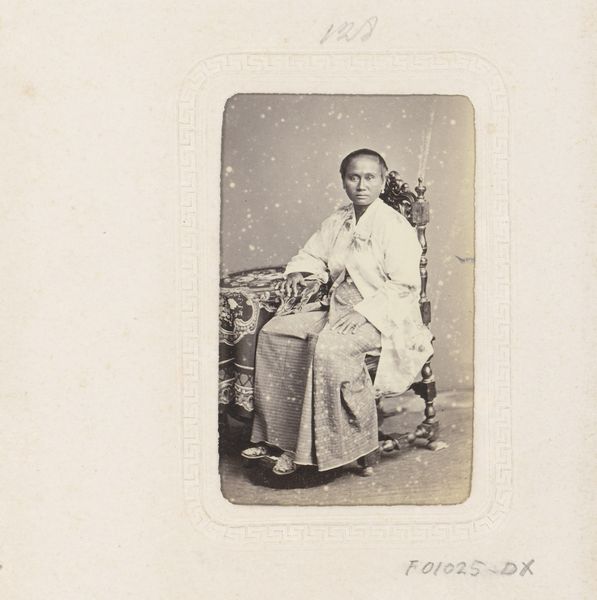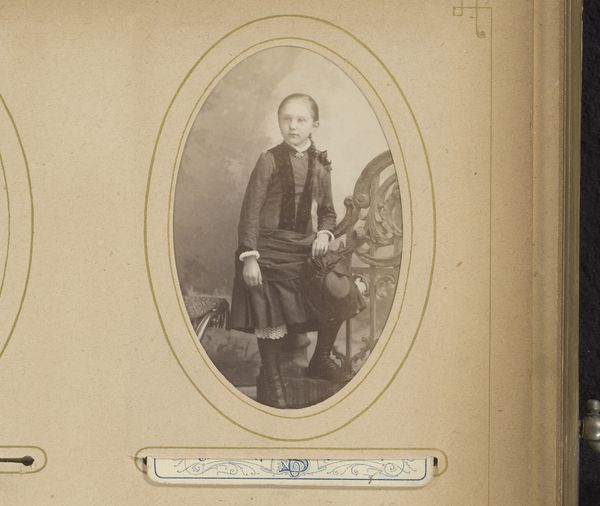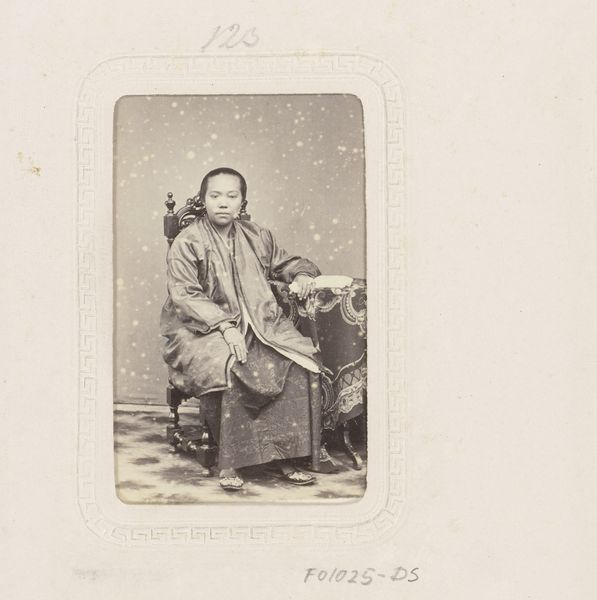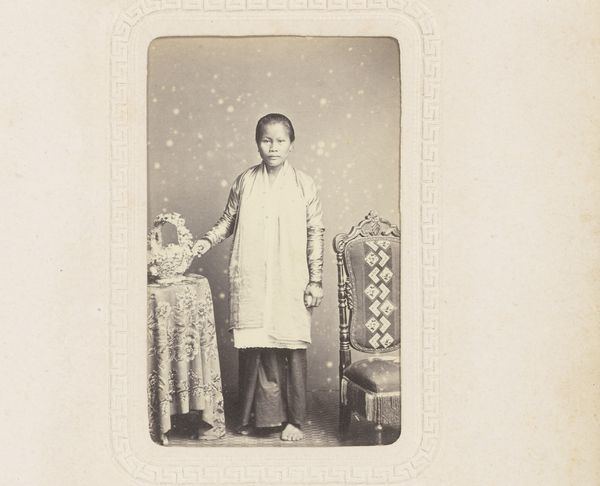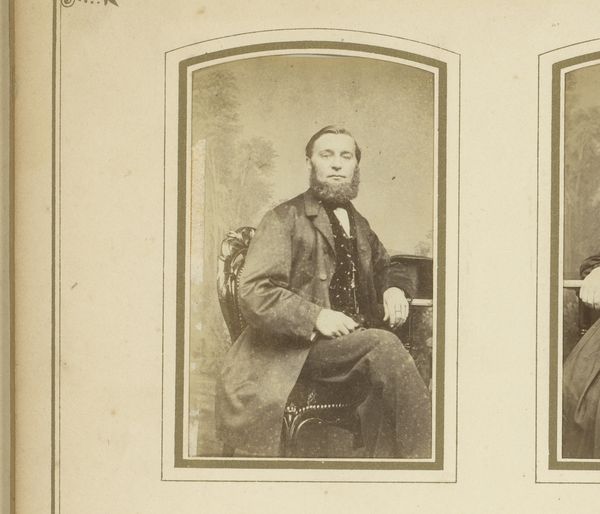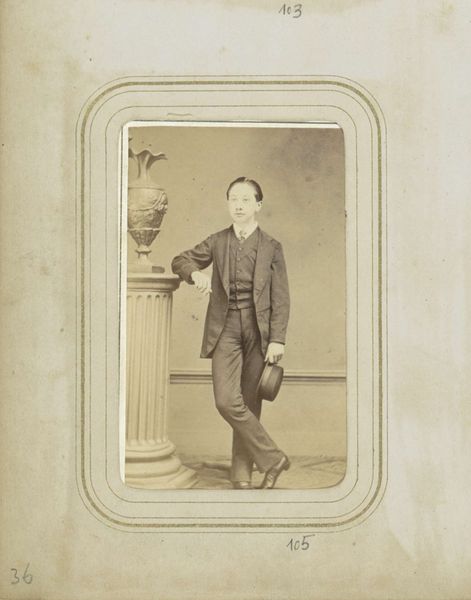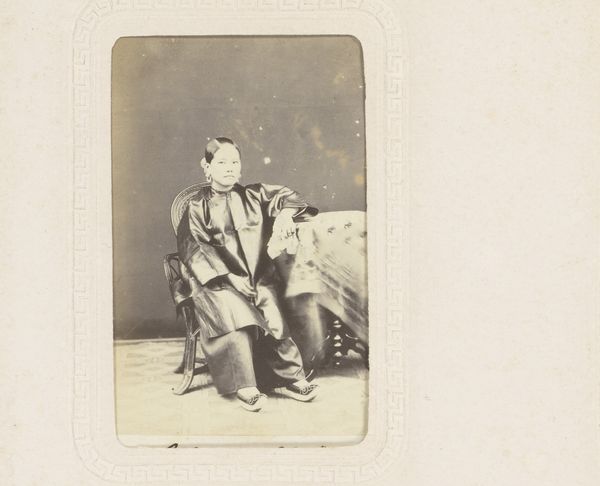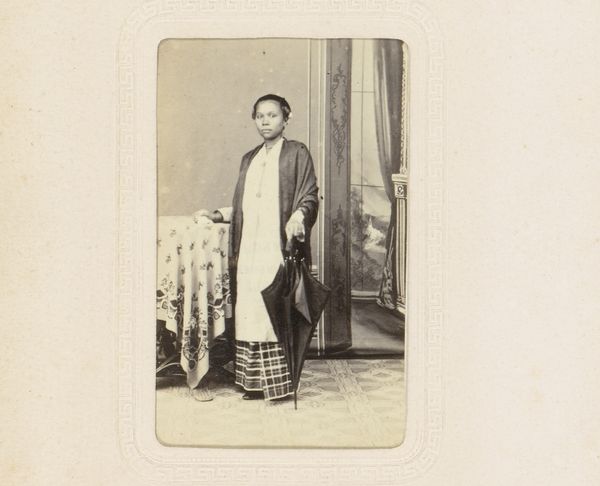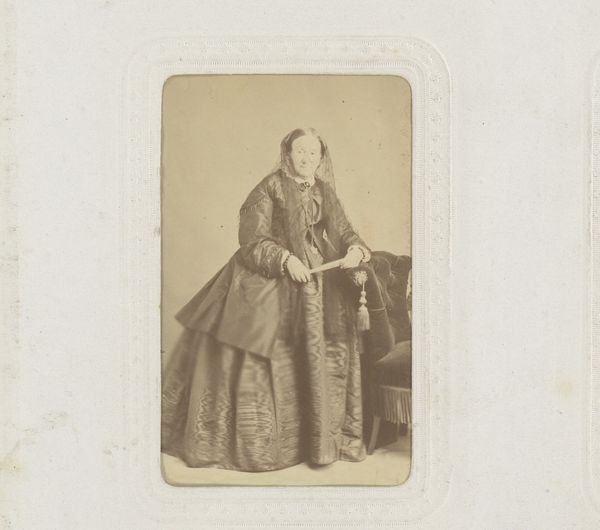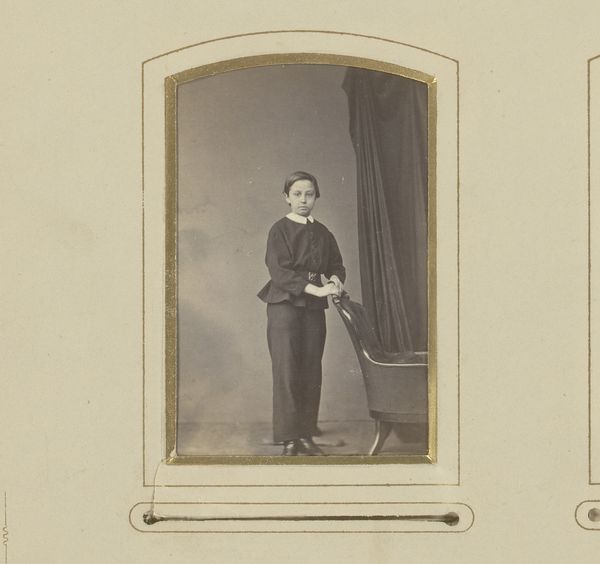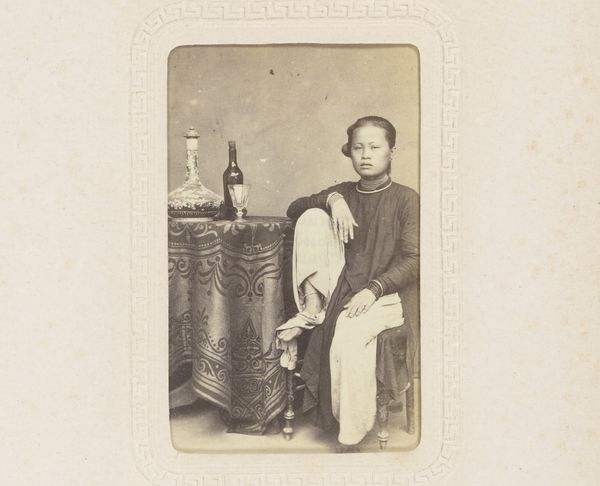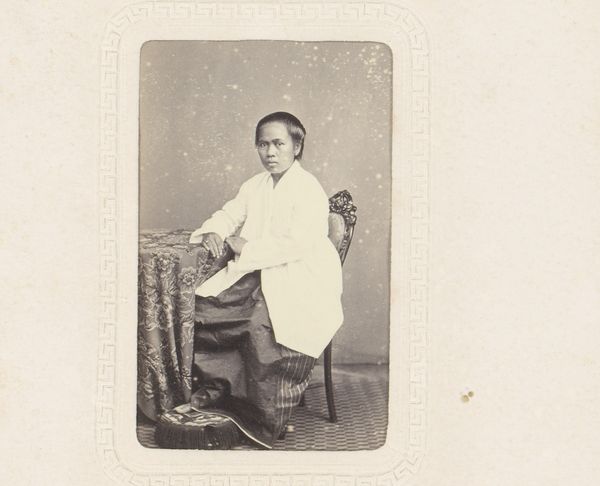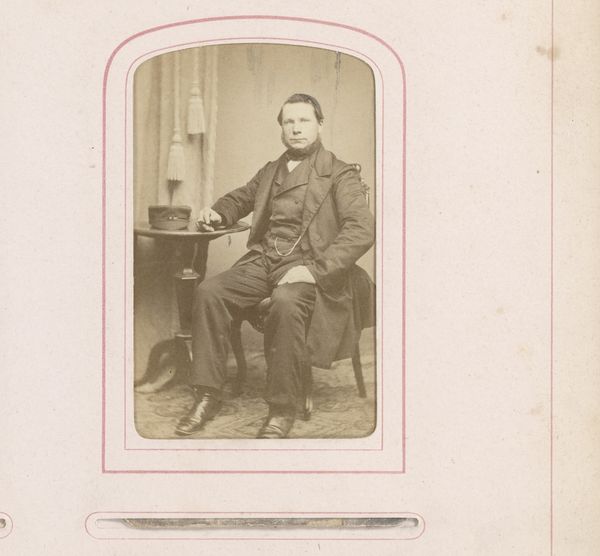
photography, albumen-print
#
portrait
#
asian-art
#
archive photography
#
photography
#
historical photography
#
19th century
#
albumen-print
Dimensions: height 85 mm, height 52 mm
Copyright: Rijks Museum: Open Domain
Editor: Here we have "Portret van een zittende Indonesische vrouw" taken between 1857 and 1880, by Woodbury & Page. It’s an albumen print, and the woman’s gaze is really captivating, almost haunting. What stands out to you in this piece? Curator: I'm drawn to how photography at that time was used to fix identity, especially in a colonial context. Notice the elaborate jewelry, the velvet, and the stylized pose. What symbols do you think these carry, for both the sitter and the Western viewer? Editor: I guess the jewelry and velvet represent status. But it's interesting to think about what that meant in Dutch colonial Indonesia... Were these signifiers for local elites adapting to Western styles, or something else? Curator: Perhaps. Think about the flower in her hair too; seemingly delicate, but flowers in many cultures signal stages of life, of ritual belonging, of carefully constructed femininity. It's about more than just beauty, isn't it? Consider how her direct gaze meets the camera. It counters easy objectification, presenting a nuanced power, don’t you think? Editor: Absolutely. Her expression is quite controlled, maybe even a bit defiant? The photograph as a whole feels like it's capturing a complex negotiation of power and identity. Curator: Precisely! And through those photographic layers of pose, costume and gaze we read a continuing story of cultural negotiation still resonant today. Editor: This makes me see how seemingly simple portraits can reveal really layered meanings. I'll definitely be looking at historical photos differently now. Curator: Me too. The dialogue between subject and photographer continues to speak.
Comments
No comments
Be the first to comment and join the conversation on the ultimate creative platform.
